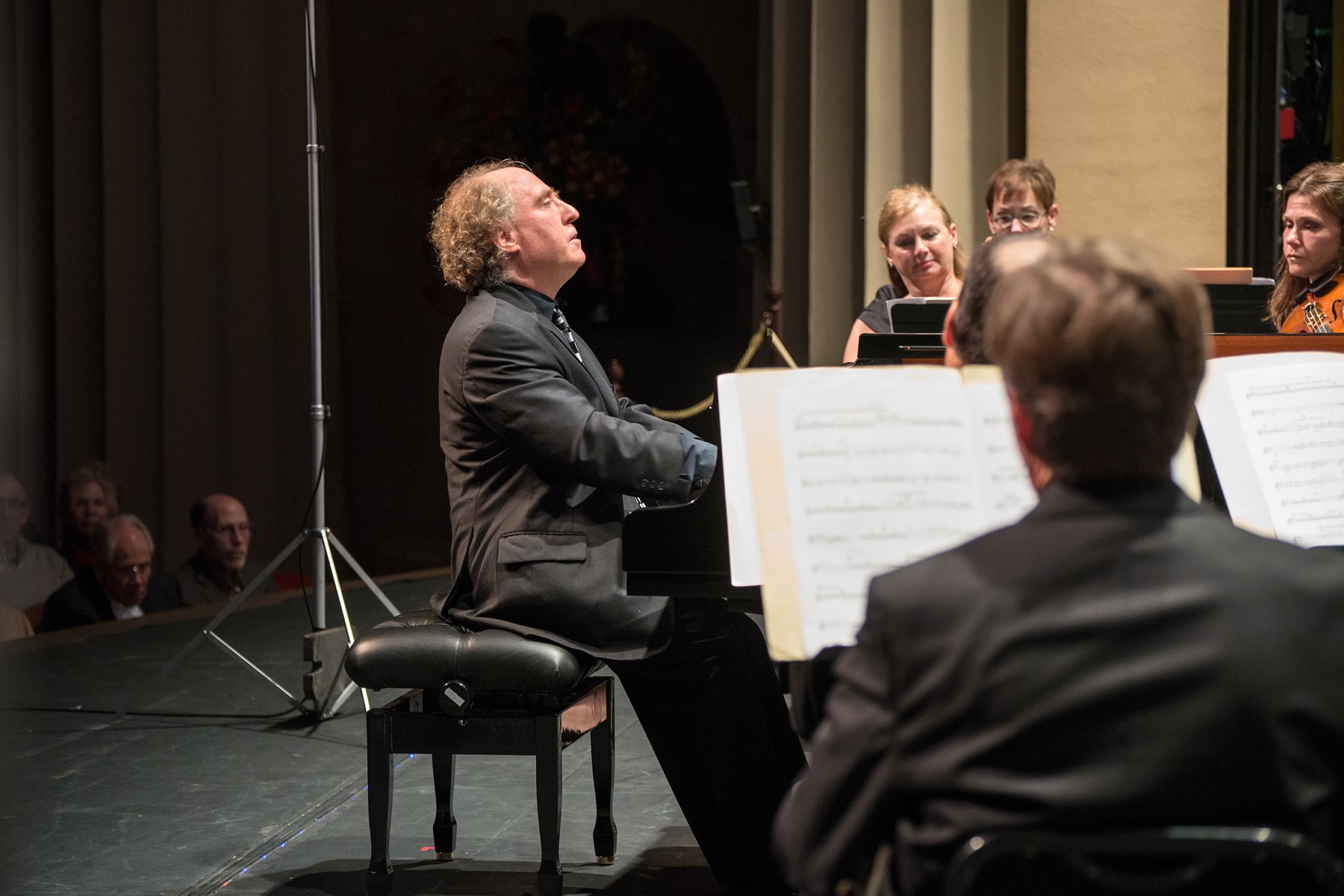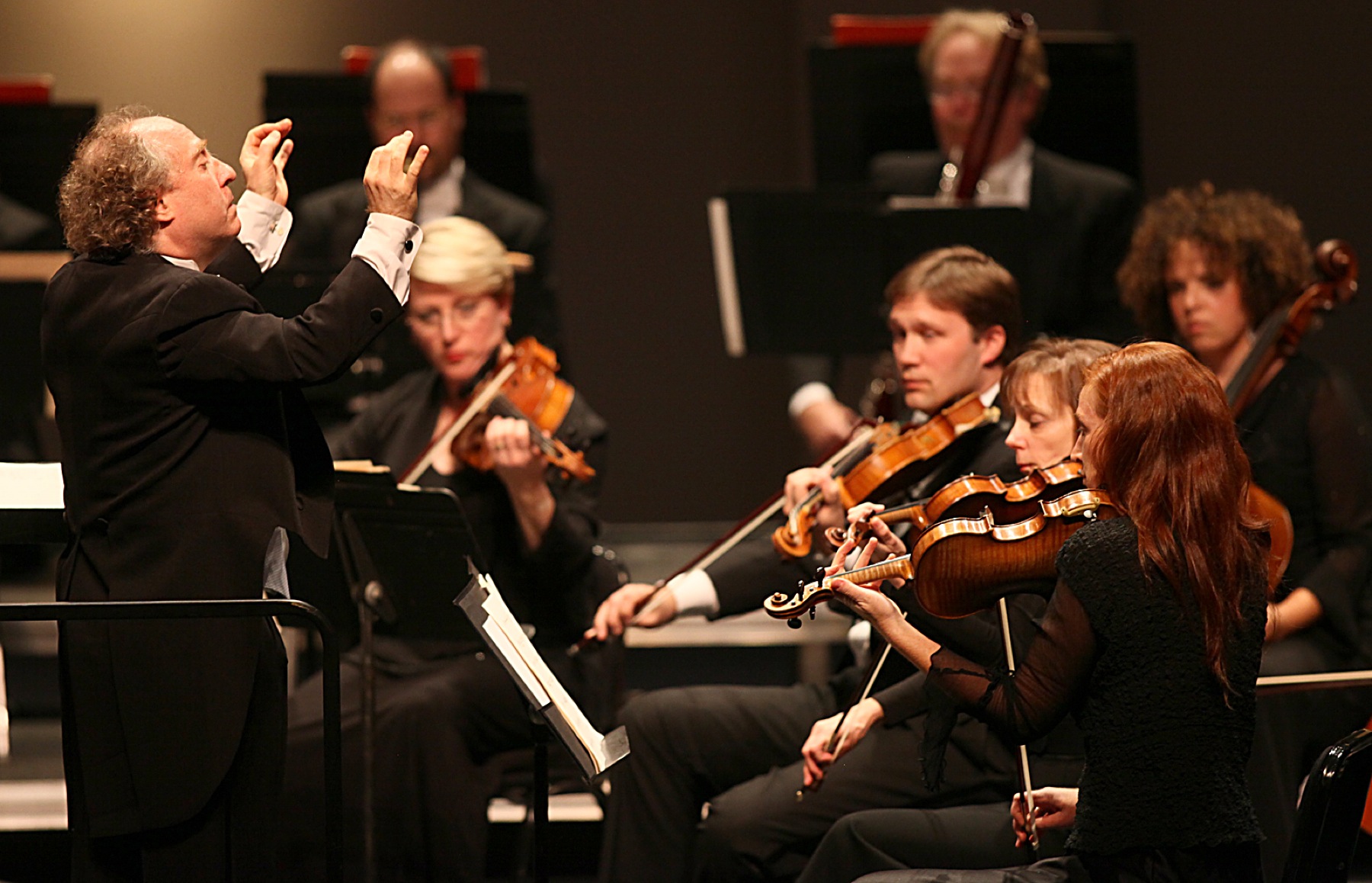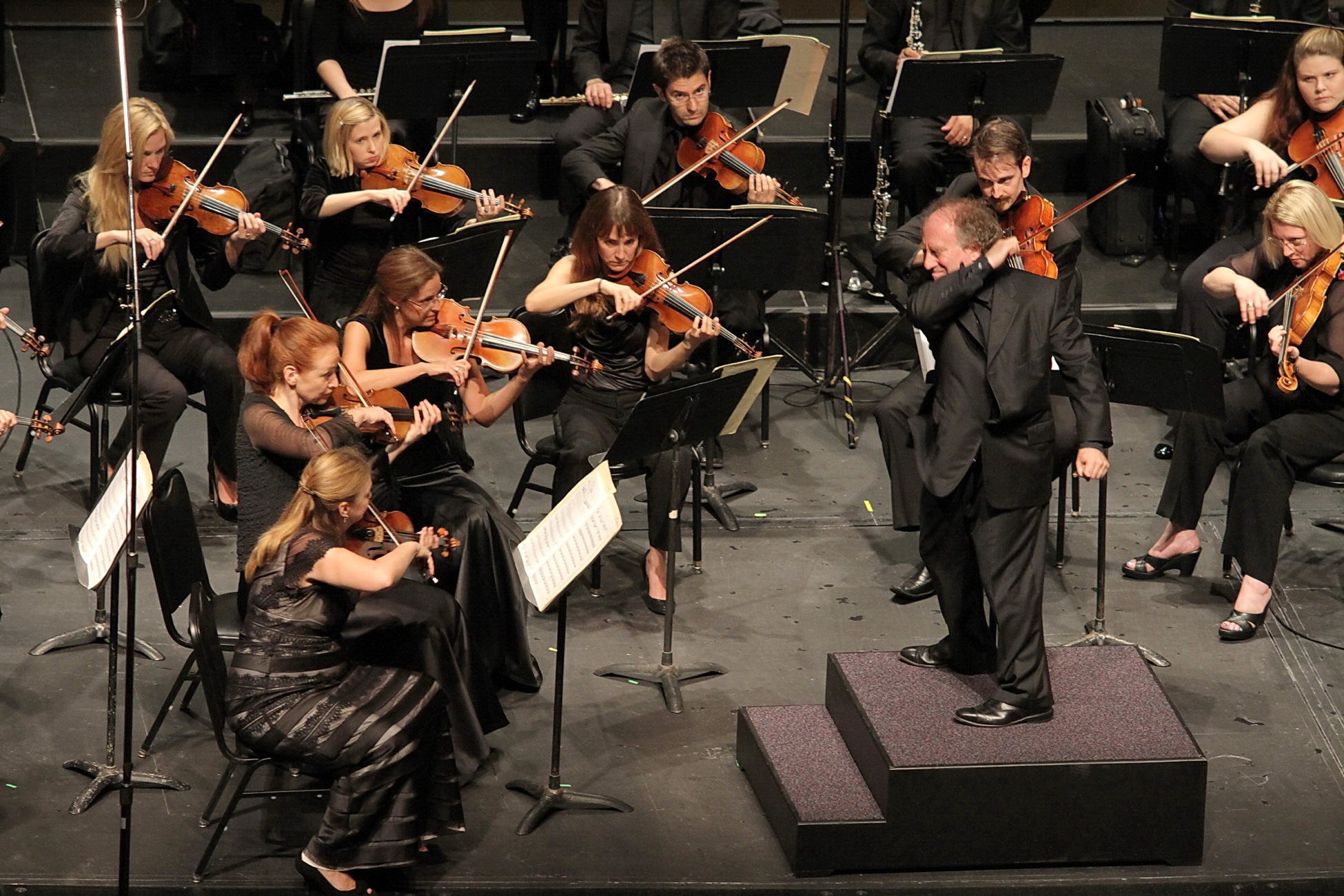LACO Music Director Jeffrey Kahane
Jeffrey Kahane (photo: Michael Burke)
“If there is any one thing I have tried to bring to LACO’s musical image, it is the stylistic range that springs from the enormous gifts it has as a collection of individual artists and as an ensemble.”
Los Angeles-born Jeffrey Kahane is the quintessential in demand artist because he enjoys a successful career as pianist and conductor and possesses an innate grasp of such composers as Bach or John Adams. In 1981 he earned a fourth place at the Van Cliburn International Piano Competition and a couple of years later was awarded Grand Prize at the Arthur Rubinstein International Piano Competition. Soon after he made a Carnegie Hall debut and subsequent appearances followed as soloist and chamber musician with such groups as the Leipzig Gewandhaus Orchestra, Emerson Quartet, and as accompanist for Yo-Yo Ma, Joshua Bell and Dawn Upshaw.
He became more and more absorbed with conducting and made his debut in 1988 at the Oregon Bach Festival which led to guest conducting appearances with orchestras in Chicago, Cleveland, Philadelphia, San Francisco (among others) and held positions as Music Director of the Santa Rosa and Colorado symphonies. Now in his twentieth and final season as Music Director of the Los Angeles Chamber Orchestra (LACO), his impressive artistic accomplishments include his own performances of the complete piano concertos of Mozart and Beethoven. He is currently Music Director of the Sarasota Chamber Music Festival and Artistic Director of Green Music Center ChamberFest in Sonoma, California. As pianist-conductor, he performs at prestigious venues such as the Mostly Mozart Festival in New York, Chamber Music Society of Lincoln Center, Ravinia Festival – and his numerous recordings include Bach’s concertos with the LACO and Hilary Hahn (DGG). He is a faculty member of the Thornton School of Music at the University of Southern California. Jeffrey Kahane reflects about his career with Editor Leonne Lewis.
This is your 20th and final season as Music Director of the Los Angeles Chamber Orchestra. What qualities have you brought to this ensemble through the years?
I would never say that I have tried to shape LACO in my own musical image. I’m not even sure I could do that even if I tried, since I don’t even think I could identify what my “musical image” is! On the contrary, I have done everything I can to permit the group to express itself in all its wonderful flexibility and stylistic agility. I can think of few other chamber orchestras that are as versatile. The LACO musicians are completely at home playing 18th century and early 19th century music in the most stylish and vibrant way, then turning on a dime to play American jazz-inflected music that sounds like a great big band and then turn on a dime, yet again, to play the thorniest of contemporary scores. If there is any one thing I have tried to bring to LACO’s musical image, it is the stylistic range that springs from the enormous gifts it has as a collection of individual artists and as an ensemble.
Your early piano studies in Los Angeles included the respected pianist and teacher Jakob Gimpel. How was he an important influence for you?
Perhaps the single most important thing I learned from Mr. Gimpel, and among the most important things I learned from any musician, was the idea of music as a kind of narrative. Few musicians I’ve ever encountered had such a gift for metaphor and image as a way of teaching. He was essentially uninterested in teaching technique and rarely, if ever, addressed the physical aspect of playing. His teaching was focused almost entirely on communicating a poetic idea or an image.
As a successful concert pianist and music director-conductor, often from the piano, do you think orchestrally when you play in terms of the piano being an integral part of the ensemble?
Always. I think orchestrally whether I am playing solo repertoire, chamber music or concertos with orchestra. The Mozart piano concertos are the pinnacle of the concerto idea, in that the solo part is both independent of and entirely integrated into the orchestral texture, depending on the dramatic and expressive need of the particular moment.
I read that your family is related to Kurt Weill. This January LACO featured the Lift Every Voice series (LEV), which explored the music and life of Kurt Weill as well as concepts of social justice through the works of Dr. Martin Luther King and Joachim Prinz. What is so relevant about Weill’s music?
Weill was, in addition to being a composer of genius, a man of the most profound social conscience. From his earliest years as a leading light of the avant-garde in Berlin in the 1920’s and early 1930’s, throughout his Broadway years and right up until his final work for the Broadway stage, “Lost in the Stars” – which closed our Lift Every Voice series – Weill never lost sight of the ethical imperative to speak on behalf of those who were suffering from persecution or oppression. His greatest music, as he himself knew, came from his sense of identification with the Other.
In 1963, Joachim Prinz gave a speech that preceded the historic ‘I Have a Dream’ speech of Martin Luther King in which he said, “America must not become a nation of onlookers. It must speak up and act, from the President down to the humblest of us…” Was his concept the motivation behind LACO programming this January Bruce Adolphe’s violin concerto “I Will Not Remain Silent,” which received its West Coast premiere?
Absolutely. The Adolphe violin concerto and its title formed the initial impetus for the entire Lift Every Voice initiative, which was nearly 2 ½ years in the making. It was and is my hope that those who experienced any or all of the LEV events will be inspired to have the same kind of courage that Rabbi Prinz, Kurt Weill and Dr. King had in standing up and speaking out against injustice and oppression in every form, at whatever time and place.
Your appointment to the University of Southern California allows students to benefit from your musical insight. Is your approach to teaching based on a certain method?
I have no method whatsoever when I teach. I respond to the needs of each individual student as best as I can, in hopes of helping each of them find their individual musical voice and the best way of expressing it. I’ve just taken on the position of Music Director of the Sarasota Music Festival, which is both a performing and a teaching festival, so between that and my position as Professor of Keyboard Studies at the USC Thornton School of Music, teaching is going to be a central part of my musical life for some time to come.




